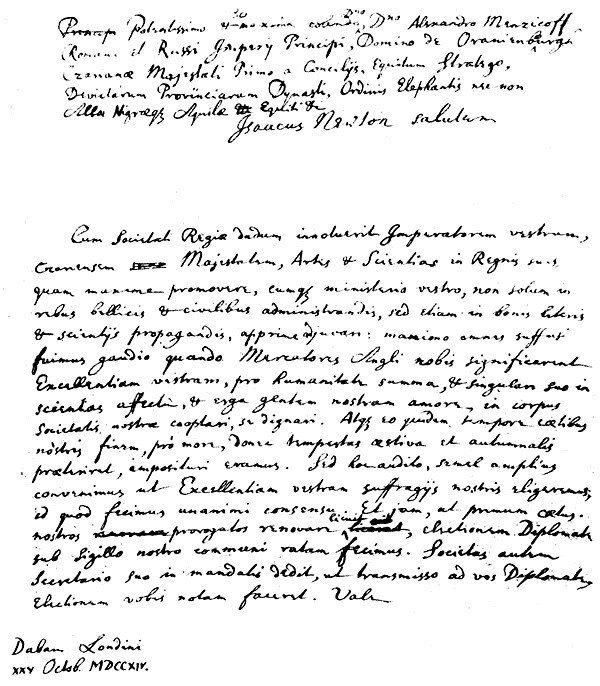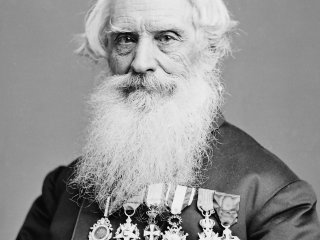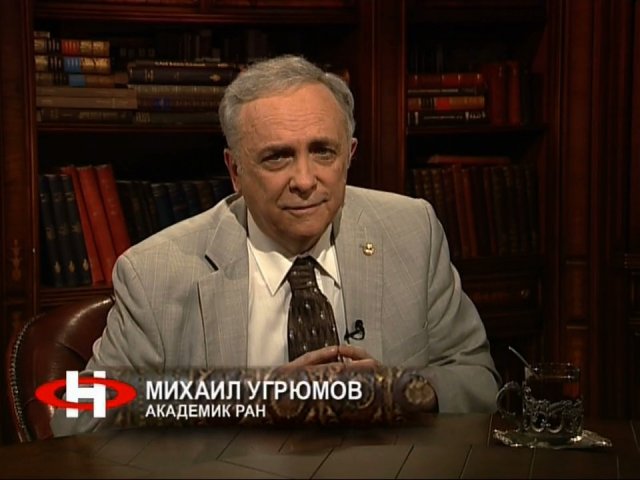
“To the Most Powerful and Honorable Lord Mr. Alexander Menshikov, Prince of the Roman and Russian Empires, Lord of Oranienburg, Chief Counselor of His Majesty the Tsar, Marshal, Ruler of Conquered Lands, Knight of the Order of the Elephant and of the Highest Prussian Order the Black Eagle, etc.” Instead of “etc.” the venerable scientist could add “Duke of Izhora, His Serene Highness of the Roman Empire and the Russian State, Supreme Privy Counsellor, Reichsmarschall, President of the College of War, Admiral of the Red Flag, Governor of Saint Petersburg.” From this moment, his impressive list of titles was supplemented with the title of the Academician. Why did Menshikov enjoy such a high honor? Let us listen to Sir Isaac: “Whereas it has long been known to the Royal Society that your Emperor has furthered great advances in the arts and sciences in his Kingdom, we were all filled with joy when the English merchants informed us that Your Excellency, out of his high courtesy, singular regard for the sciences, and lover of our nation designs to join the body of our Society...” How did the overseas society find out about the merits of the Tsar Peter’s associate? Newton artlessly explained everything in the same letter: “...we were all filled with the greatest joy when the English merchants informed us that Your Excellency (out of his high courtesy, singular regard for the sciences, and lover of our nation) designs to join the body of our Society. “And great scientist Newton was not mistaken: indeed, the library of the tsar’s favorite was impressive. It’s a pity that he did not read a single line on his own – he was illiterate till the end of his life. As for Peter the Great, he became an academician thanks to the French three years later.
























